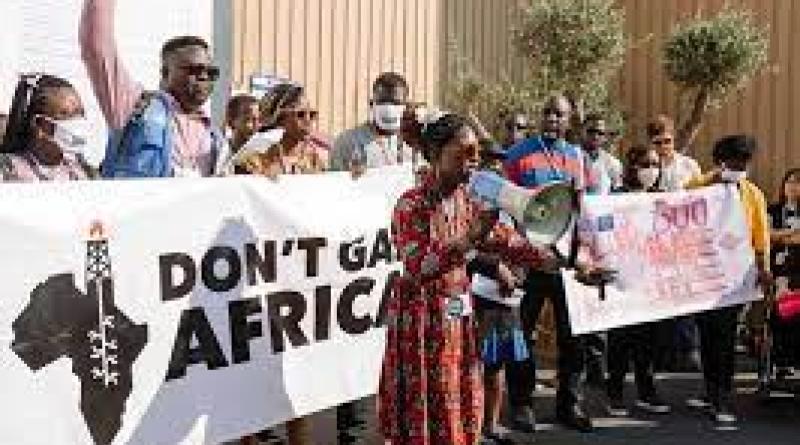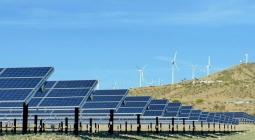Civil society organisations petition African leaders to reject gas energy strategy

With the thirty-sixth Ordinary Session of the African Union (AU) Assembly of Heads of State being held in Ethiopia over the weekend of February 18 and 19, civil society organisations (CSOs) have called for the AU to play a more ambitious role in creating a fossil fuel-free energy future in Africa.
CSOs have begun circulating a report titled the ‘Fossil Fuelled Fallacy’ to Heads of State and Ministers attending the AU meeting. The document outlines how expanding gas production in Africa would supposedly undermine almost every element of development, including increasing the risk of stranded assets and expensive energy, encouraging foreign ownership of African resources, creating fewer jobs and causing widespread harm to health and livelihoods.
The report – initially launched by CSO Don’t Gas Africa, in cooperation with the fellow CSO Fossil Fuel Treaty Initiative, at the twenty-seventh Conference of the Parties, held in Egypt, last year – alleges that the enthusiasm for gas-based energy generation is a short-sighted strategy to profit from the energy crisis, where the fossil fuel industry has been accused of misappropriating the language of climate justice to legitimise large-scale expansion of fossil fuels in Africa.
“Instead of selling away fossil fuel extraction rights to big multinational companies, African leaders should invest in clean, renewable energies that will directly benefit people across the continent without damaging their health,” Don't Gas Africa campaigns lead Dean Bhekumuzi Bhebhe said.
The AU Summit presents an opportunity for Africa to expand energy access and accelerate the transition to clean, renewable energy. However, the AU Summit could also be used to entrench reliance on fossil fuels.
Some CSOs have said they are concerned about a proposal put forward by energy and infrastructure Ministers for an African “common position” on energy.
According to these CSOs, they believe they have shown that this proposal will not adequately address energy access and transition aims, nor do they believe that the proposal is consistent with the Paris Agreement’s warming limit of 1.5 °C above preindustrial levels and the existing African Common Position on Climate Change.
The CSOs believe the proposal risks raising global warming further and is inconsistent with Africa’s wider development objectives, putting the AU's Agenda 2063 and the United Nations' Sustainable Development Goals at risk.
A letter expressing these concerns, signed by more than 300 CSOs, had received no acknowledgement from the AU, the organisations stated.
“We urge African leaders to co-create a just development path together with African people that is clean, pan-African and champions people’s regenerative economies away from fossil fuels,” Africa Climate Movements Building Space coordinator Lorraine Chiponda said.
The CSOs believe the upcoming AU Summit provides African leaders with the opportunity to define and set a common narrative that will call for a rapid transition to people-centred, clean and renewable energy for the continent.
The CSOs collectively have called for the rejection of the allegedly false promises of fossil gas, which include the creation of jobs, increased energy access and a transition to renewable energy.
“There is no place for the expansion of fossil gas in the energy transition in Africa, as it would crowd out resources for renewable energy and dull any hopes for the transition.
“We urge African leaders to reject the push for gas production in Africa and instead galvanise resources from developed nations to support renewable, community-centred and accessible clean energy systems vital to achieving a just energy transition in the region,” 350Africa.org regional director Landry Ninteretse said.
The CSOs do not believe expanding gas production will result in a surge in job opportunities. Rather, they said employment in fossil fuel production was expected to decline by about 75% by 2050 in a "well below" 2 °C warming scenario, with most of the job losses related to diminishing upstream fossil fuel production.
Secondly, the expansion of gas production would allegedly not enhance energy access for about 600-million Africans who are currently without it. Plans to increase gas production are primarily for export deals with Europe, and such plans can take up to two decades to become operational, the CSOs argued.
The concern is that this strategy would ship African energy and profits abroad and simultaneously fail to address the immediate energy needs of Africans. By contrast, the CSOs believe investments in renewable energy could be implemented within months and begin to directly provide energy to people this year.
Africa's wind power potential alone is sufficient to fulfil the current electricity demand 250 times over, they claimed.
Thirdly, the expansion of gas production was not viewed by the CSOs as a step towards investing in a transition fuel for renewable energy. Rather, such investments were said to compete with funding that could be allocated directly to developing decentralised, clean and affordable renewable energy systems.
“The expansion of gas production does not aid in our transition to the future; rather, it continues to entrench us in the past,” the collective said.
Edited by: Chanel de Bruyn
Creamer Media Senior Deputy Editor Online






